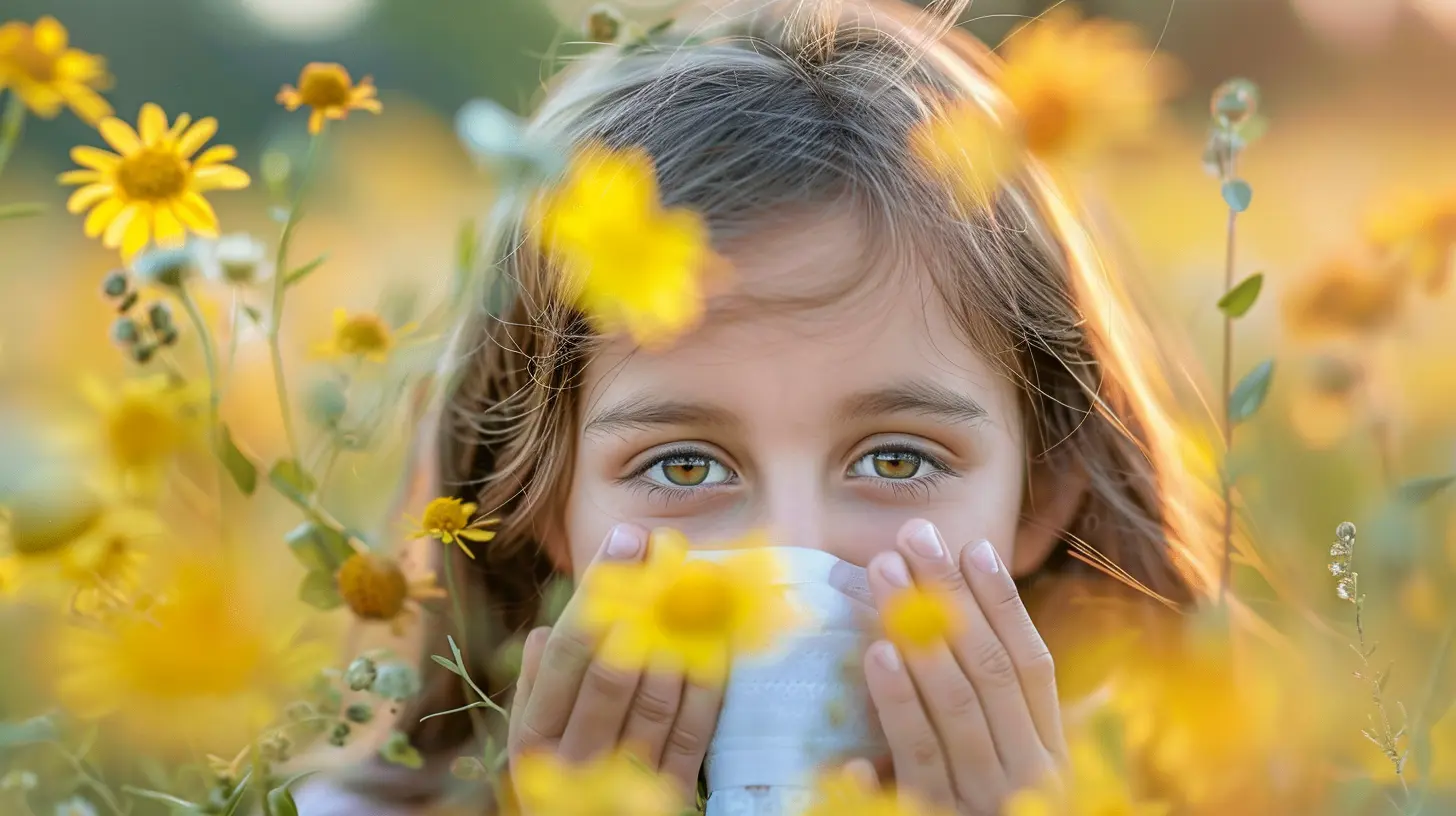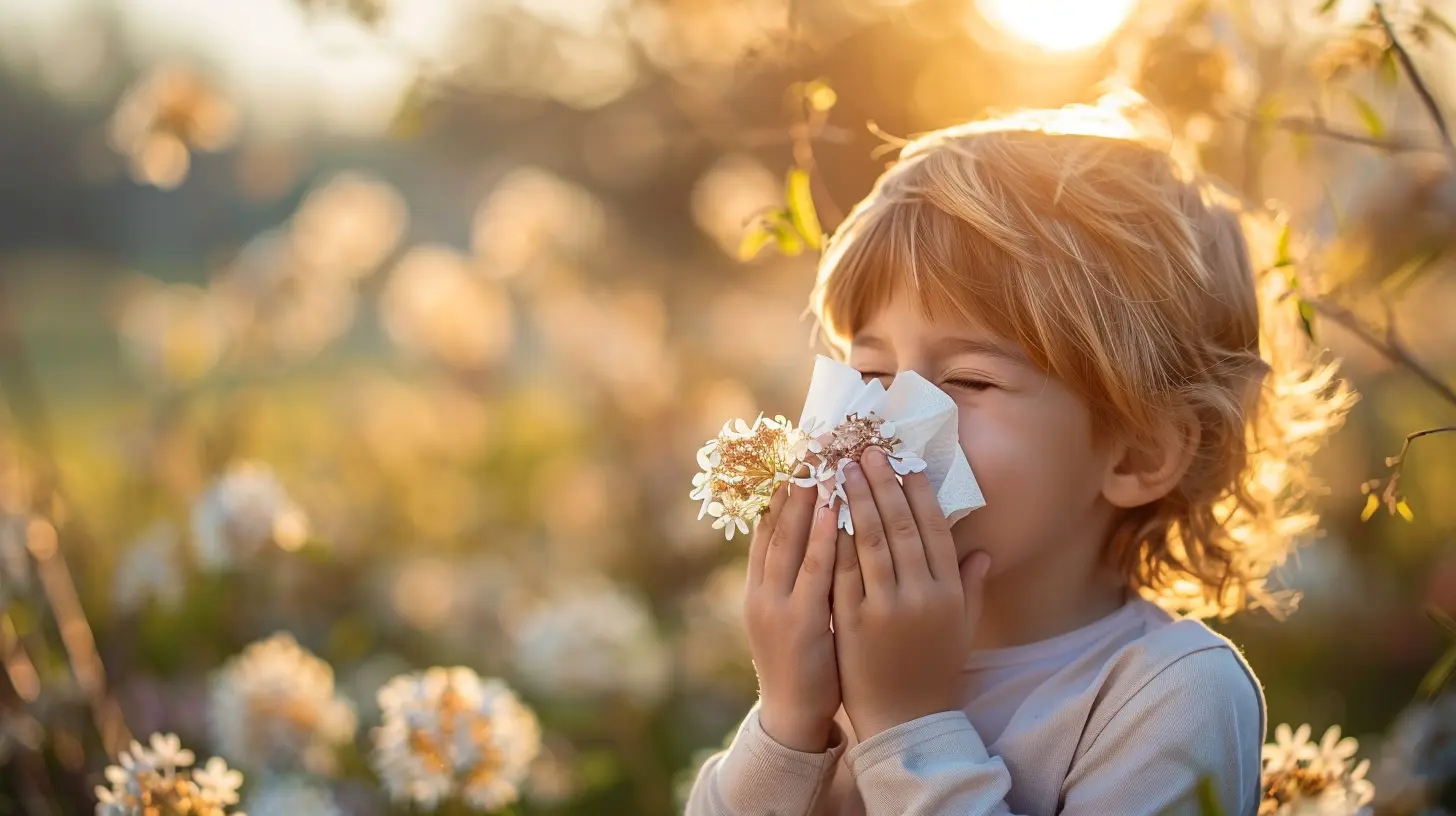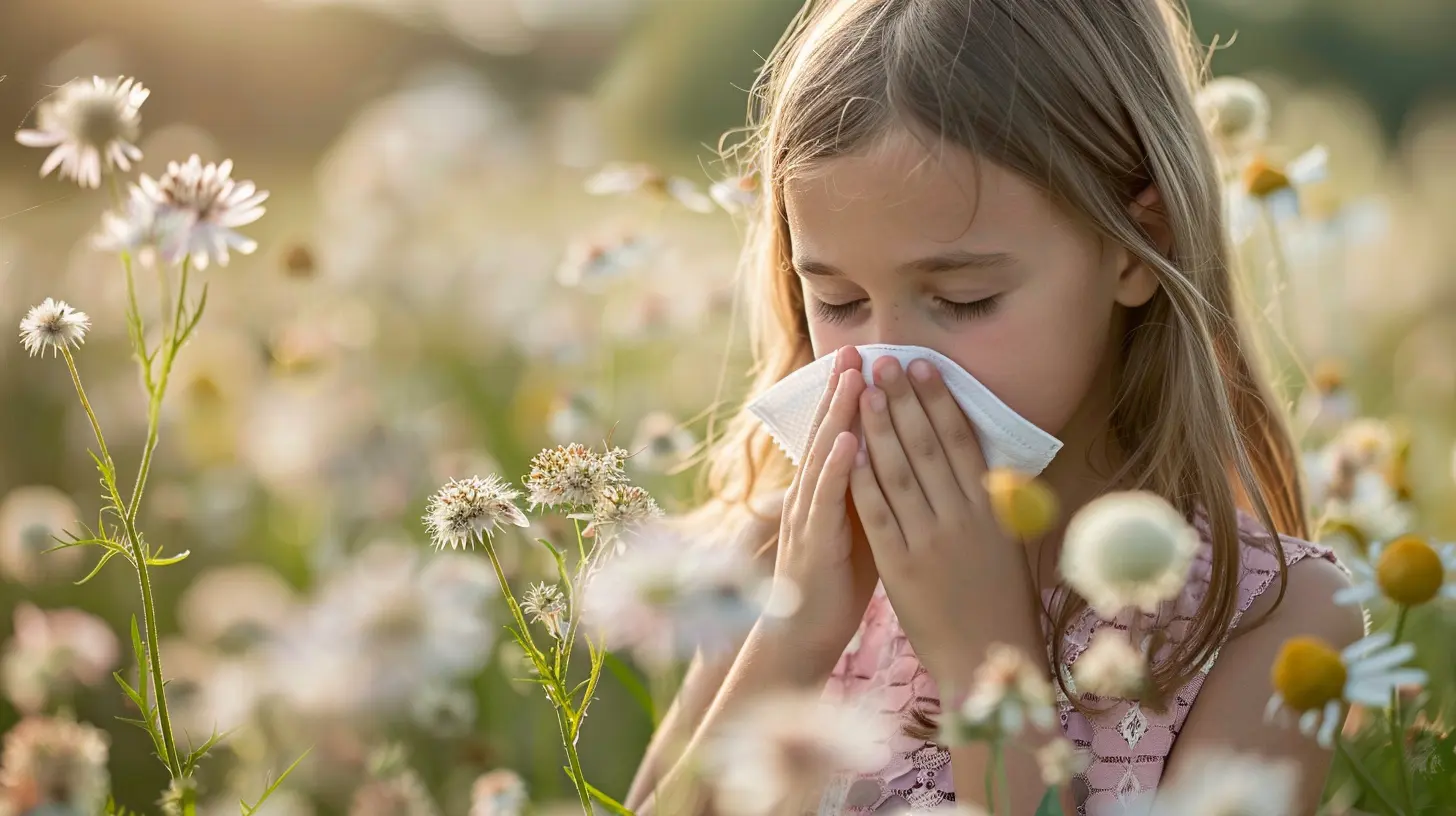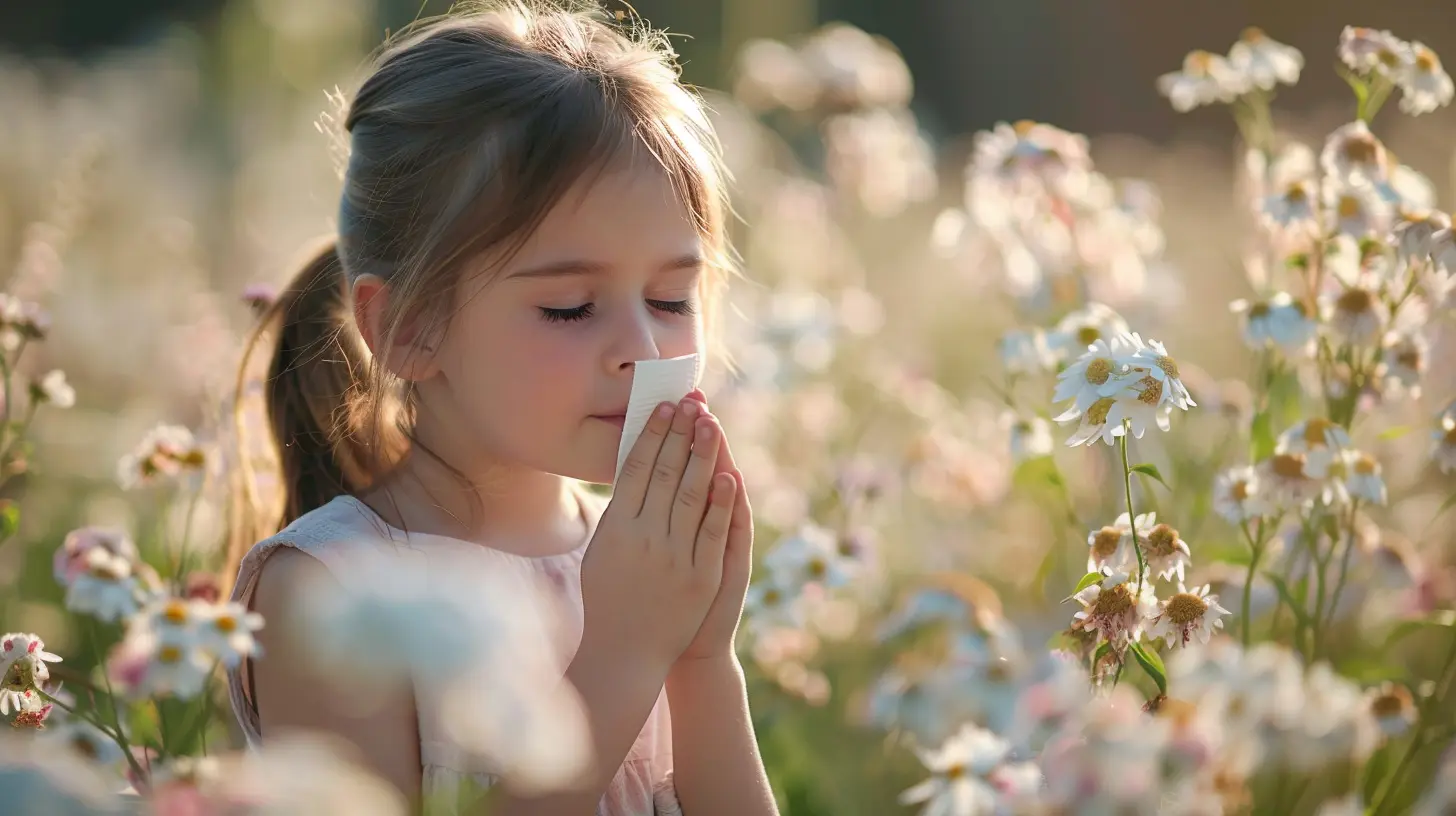Managing Childhood Allergies: Tips for Parents
2 November 2025
Allergies in children are more common than ever, and if you're a parent dealing with them, you know how overwhelming it can feel. From seasonal sniffles to food allergies that can trigger serious reactions, managing childhood allergies requires knowledge, preparation, and a little bit of patience.
So, what can you do to keep your child safe and comfortable? In this guide, we'll break down everything you need to know about managing childhood allergies, along with some practical tips to make daily life a little easier.

Understanding Childhood Allergies
Before we dive into the solutions, let's first understand what childhood allergies actually are. Allergies occur when a child's immune system overreacts to a substance that is generally harmless, such as pollen, pet dander, or certain foods. These substances, known as allergens, can trigger symptoms ranging from mild to life-threatening.Common Types of Allergies in Children
Children can develop allergies to a variety of things, but some of the most common include:- Food Allergies – Eggs, milk, peanuts, tree nuts, soy, wheat, fish, and shellfish are among the top culprits.
- Seasonal Allergies (Hay Fever) – Pollen from trees, grasses, and weeds can cause sneezing, runny nose, and itchy eyes.
- Pet Allergies – Proteins found in pet dander, saliva, or urine can trigger allergic reactions.
- Dust Mites and Mold – These invisible allergens thrive in homes, causing respiratory issues.
- Insect Stings – Bee stings, wasp stings, and fire ant bites can cause severe allergic reactions in some children.

Recognizing Allergy Symptoms
Spotting allergies in kids isn’t always straightforward. Symptoms can range from mild annoyances to severe allergic reactions. Here are some signs to watch for:Mild to Moderate Symptoms
- Sneezing, runny or stuffy nose- Itchy, red, or watery eyes
- Skin rashes or hives
- Stomach pain, diarrhea, or vomiting (for food allergies)
Severe Symptoms (Anaphylaxis)
- Swelling of the lips, face, or throat- Difficulty breathing or wheezing
- Dizziness or fainting
- Rapid heartbeat
If your child experiences severe symptoms, seek emergency medical help immediately, as these could be signs of anaphylaxis, a life-threatening allergic reaction.

How Parents Can Manage Childhood Allergies
Managing childhood allergies isn’t about eliminating all risks. It’s about reducing exposure, being prepared for reactions, and helping your child navigate their allergies with confidence. Let’s break it down:1. Identify and Avoid Allergens
The best way to prevent allergic reactions is to limit exposure to triggers. Here’s how:- For Food Allergies: Read food labels carefully, inform caregivers and teachers, and educate your child on what foods to avoid.
- For Seasonal Allergies: Keep windows closed during high pollen seasons and encourage your child to shower after playing outside.
- For Pet Allergies: If you have pets, try to create pet-free zones (like your child’s bedroom) and bathe the pet regularly to reduce dander.
- For Dust and Mold Allergies: Use air purifiers, wash bedding frequently, and reduce humidity in the home with dehumidifiers.
2. Work With an Allergist
If you suspect your child has allergies, getting an allergy test can help pinpoint specific triggers. An allergist may recommend skin prick tests, blood tests, or elimination diets to identify the problem. Once diagnosed, they can develop a personalized allergy management plan.3. Keep Medication Handy
Allergy symptoms can flare up unexpectedly. Always have the necessary medications on hand, including:- Antihistamines – For mild allergic reactions like sneezing and hives.
- Epinephrine Auto-Injectors (EpiPen) – If your child has severe allergies, keeping an epinephrine injector nearby can be lifesaving.
- Nasal Sprays and Eye Drops – Help relieve seasonal allergy symptoms.
4. Educate Your Child and Others
Your child should understand their allergies as soon as they are old enough. Teach them to:- Recognize what triggers their allergies
- Politely refuse foods they’re unsure about
- Speak up if they start feeling unwell
Additionally, inform caregivers, teachers, and family members about your child’s allergies so they, too, can help prevent accidental exposure.
5. Allergy-Proof Your Home
Creating an allergy-friendly home makes a big difference. Here are a few simple tweaks:- For food allergies: Keep allergen-free snacks available and designate separate cooking utensils.
- For environmental allergies: Vacuum often, use dust-mite-proof covers on pillows and mattresses, and clean air filters regularly.
- For pet allergies: If rehoming a pet isn’t an option, regular grooming, cleaning, and air purifiers can help.
6. Plan Ahead for Outings and Travel
Restaurants, vacations, and playdates can be tricky when allergies are involved. Here’s how to stay prepared:- Dining Out: Ask about food ingredients and how meals are prepared. Many restaurants accommodate allergies if you notify them in advance.
- Traveling: Pack safe snacks, research allergy-friendly hotels, and always carry medications. If flying, let the airline know about your child's allergies.
- Playdates and School Events: Provide allergy-safe snacks and ensure teachers or parents are aware of any severe allergies.
7. Strengthen the Immune System
While allergies are immune system overreactions, having a strong immune system can help your child’s body handle allergens better. Encourage:- A balanced diet rich in fruits, veggies, and whole foods
- Regular exercise and outdoor play (even if it means managing seasonal allergies)
- Good sleep habits
- Managing stress, as anxiety can sometimes worsen allergy symptoms

Emotional Impact of Childhood Allergies
Let’s face it—having allergies can be tough on kids. They may feel left out during birthday parties, frustrated about avoiding their favorite foods, or embarrassed about carrying medication.As a parent, acknowledging their feelings and supporting them emotionally is just as important as managing their physical symptoms. Encourage them by:
- Reassuring them that having allergies doesn’t define them
- Finding alternative treats or activities so they don’t feel left out
- Helping them practice explaining their allergies to friends in a confident way
Final Thoughts
Managing childhood allergies might feel like a full-time job, but with the right strategies in place, you can create a safe and happy environment for your child. By learning about their triggers, staying prepared, and educating those around them, you can help your little one live a normal, joyful life—even with allergies.At the end of the day, a little extra caution and preparation go a long way in keeping your child safe and healthy. So, take a deep breath—you got this!
all images in this post were generated using AI tools
Category:
Childrens HealthAuthor:

Tiffany Foster
Discussion
rate this article
1 comments
Nymira Warren
Thank you for this informative article! The tips provided are invaluable for parents navigating childhood allergies. Practical advice like this makes a significant difference in daily management.
November 4, 2025 at 3:56 AM

Tiffany Foster
Thank you for your kind words! I'm glad you found the tips helpful for managing childhood allergies.


